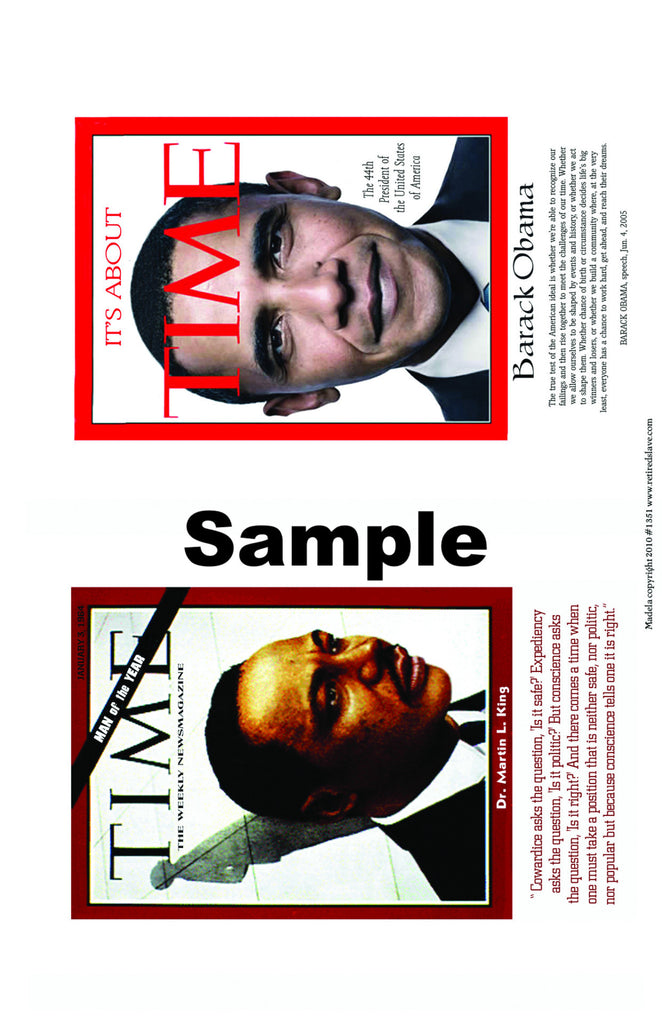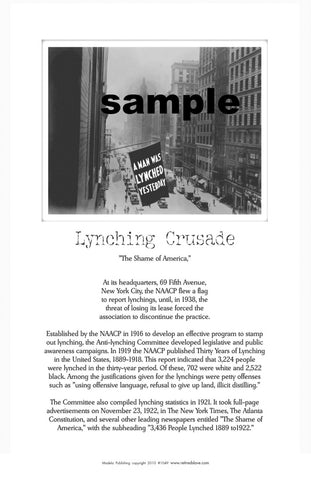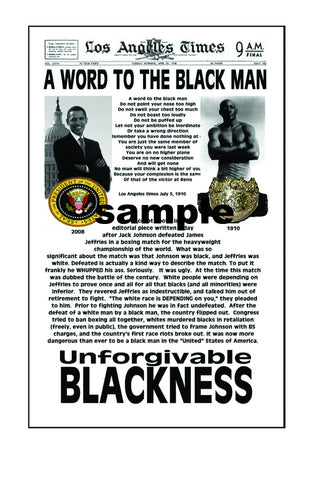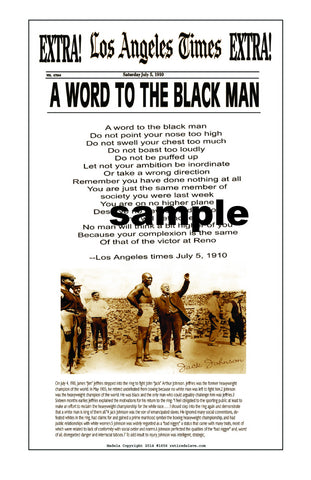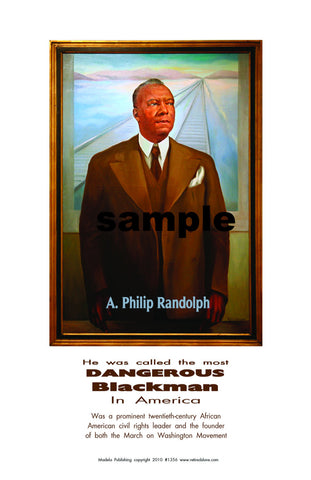Dr. Martin L. King & Barack Obama #1351
$ 10.00
Caption from poster__
“ Cowardice asks the question, 'Is it safe?' Expediency asks the question, 'Is it politic?' But conscience asks the question, 'Is it right?' And there comes a time when one must take a position that is neither safe, nor politic, nor popular but because conscience tells one it is right.”
Dr. Martin L. King
" The true test of the American
ideal is whether we are able to recognize
our failings and then rise
together to meet the
challenges of our time.
Whether we allow ourselves
to be shaped by events and history, or
whether we act to shape them.
Whether chance of birth or circumstance
decides life's big winners and
losers, or whether we build a community
where, at the very least, everyone
has a chance to work hard, get ahead,
and reach their dreams."
Barack Obama
When President Barack Obama takes the oath of office ceremonially today on the national holiday celebrating Martin Luther King Jr.'s life and vision, the links between the two men will be easy to discern.
Both battled enormous odds to build historic multiethnic, multiracial coalitions, one to advance the cause of civil rights, the other to win the nation's highest office. Both won the Nobel Peace Price. Both could use soaring rhetoric to inspire millions. Both also had to overcome critics who accused them of socialist or communist sympathies, as well as black activists who maintained that they weren't strong advocates for African-Americans.
Obama, who was officially sworn in just before noon Sunday, has long encouraged the ties between King and himself.
He spoke at King's Atlanta church Jan. 20, 2008, a year before his first inauguration. He accepted the Democratic presidential nomination in 2008 on the anniversary of King's "I Have a Dream" speech, delivered Aug. 28, 1963. He'll take the oath today on a Bible that King used, as well as on one that Abraham Lincoln used.
"What King and Obama have in common is that both are articulate voices, voices being heard at a time when people were listening and wanted to listen," said Sam Fulwood, a senior fellow at the Center for American Progress, a liberal research center.
Some differences
The two men were also different, largely because of their times.
"Making America better in 1968 is different than making America better in 2013. I think they take different paths, but their goal is to use their strengths to help America be America," said Lonnie Bunch, the director of the Smithsonian's National Museum of African American History and Culture.
National politics wasn't an option for King. He was born in 1929 and came of age in a South where the simple act of voting was at best difficult and often impossible for blacks, effectively disenfranchising them in one-fourth of the country.
Obama has benefited from a political structure that offers opportunity. He was born in 1961, soon after stronger voting-rights laws began empowering blacks and making them an important political force.
Through the years, so-called race issues have been less prominent, allowing black politicians to identify more closely with universal issues such as healthcare or the economy.
"Obama had financial advantages and the support of the Democratic Party," said Kareem Crayton, an associate professor of law at the University of North Carolina Law School. "King was trying to dismantle a hundred years of exclusion, in violation of federal law and the courts."
Passing the torch
Obama, who as a young community organizer was frustrated that he couldn't change an ingrained political system, learned to be an insider working from outside the black community. Many black leaders in early 2008 preferred Hillary Clinton as the Democratic nominee.
King was the opposite, drawing his political strength from the black population in the heart of the segregated South, a place where the church was often the heart of the political community.
"King's world was so shaped by religion and the American South versus Obama's world, which is shaped by fundamentally different things," Bunch said.
At its core, though, the bond between the two men has roots that are timeless, allowing a torch to be passed from one generation's most prominent black American to another.
"It's about leadership that comes from community support," Bunch said. "King's a Southerner coming out of a rigidly segregated environment but also coming out of a strong black middle class and nuclear family."
Obama, reaping the benefits of the post-civil-rights generation, "is able to both be deeply embedded in his community but to be beyond his community," Bunch said.
King and Obama shared an important trait that allowed them to flourish: Both knew how to reach out and become acceptable to key elements of the white community so they could build multiracial coalitions to effect change. They also had to appeal to black constituencies while not offending whites.
Obama's biggest challenge came in March 2008, during a crucial phase of his bid to win the Democratic nomination. The Rev. Jeremiah Wright, his pastor, came under fire for incendiary comments in sermons and writings. Obama quickly distanced himself.
"What's important to realize is for Obama, he really has claimed his Americanism," Bunch said. "He's really made sure that based on who he is and his vision, it's for a broader America. ... That's the tension and the balance that he has to do."
Some in the black community also have criticized Obama and King: Obama as not paying enough attention to their needs, King as not being aggressive enough.
Read more here: http://www.star-telegram.com/2013/01/20/4561812/mlk-and-obama-a-day-of-similarities.html#storylink=cpy
